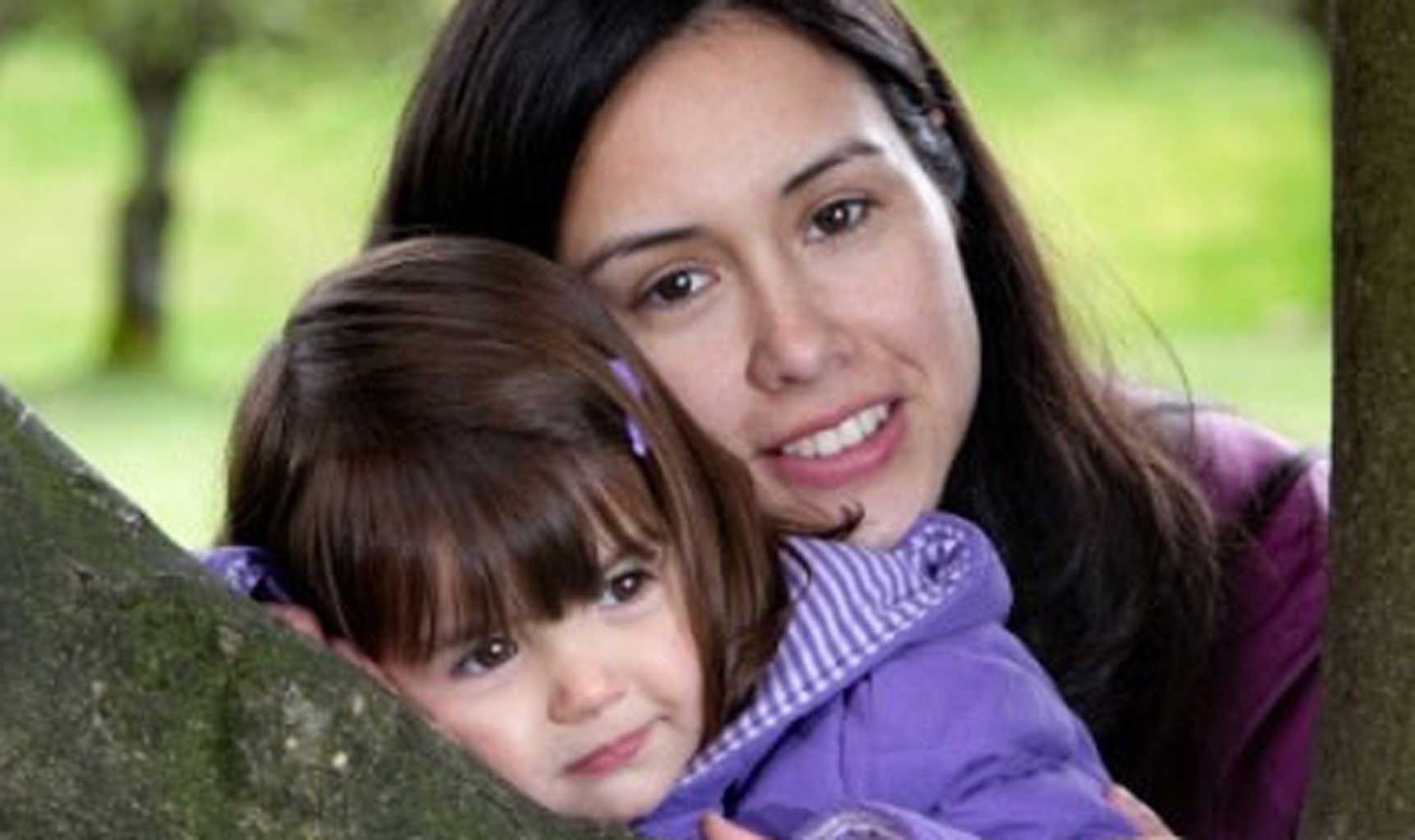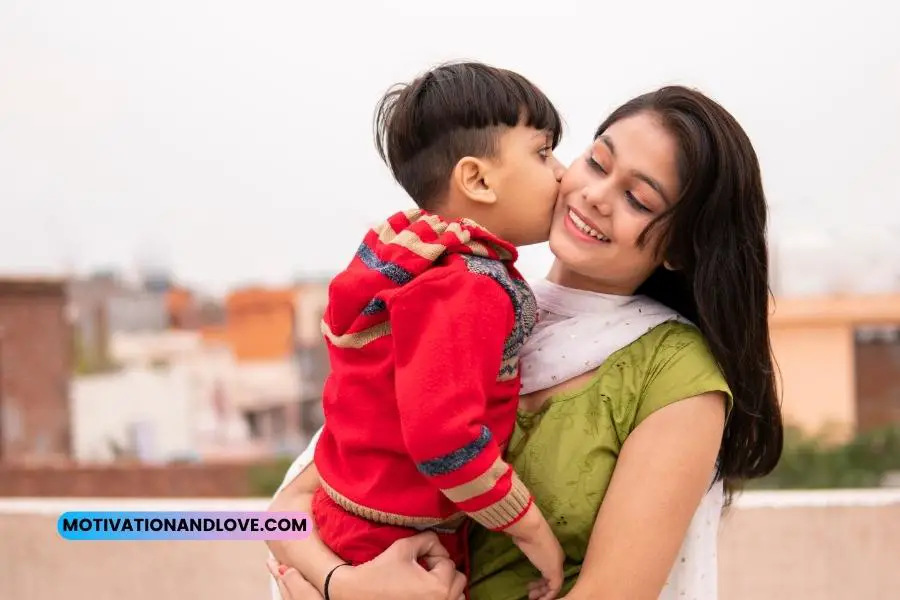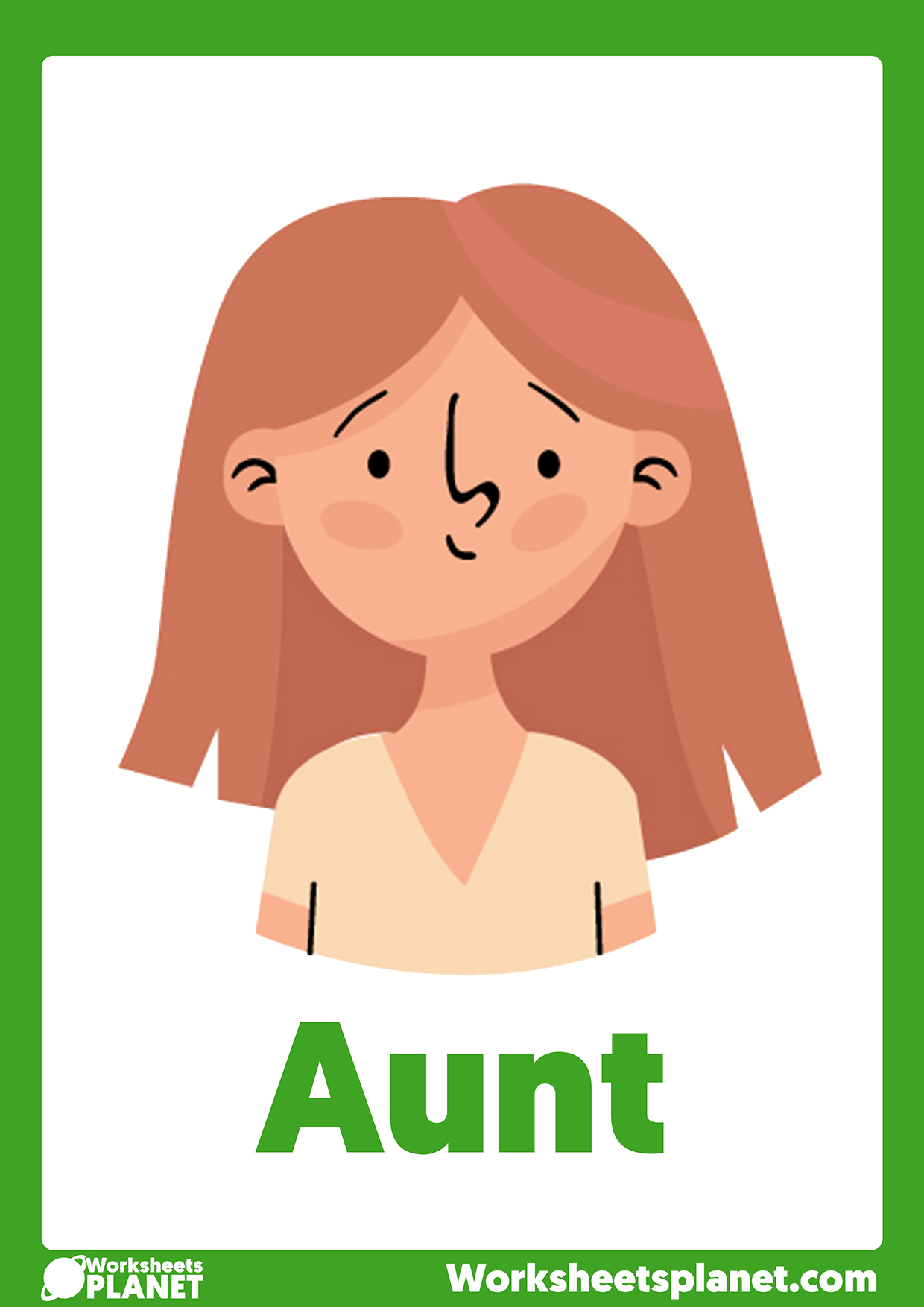Understanding Unhealthy Family Dynamics: A Guide To Boundaries And Well-being
Family relationships, while often a source of immense joy and support, can sometimes become incredibly complex, challenging, and even detrimental to our mental and emotional well-being. Navigating these intricate bonds requires a deep understanding of healthy boundaries, self-awareness, and the courage to seek help when necessary. This article delves into the nuances of unhealthy family dynamics, using the conceptual framework of an "Aunt Alina" scenario to explore common pitfalls, identify red flags, and provide actionable strategies for fostering healthier connections and prioritizing personal well-being.
The concept of family is deeply ingrained in our lives, shaping our identities, values, and perceptions of the world. However, the idealized image of a harmonious family unit doesn't always align with reality. From subtle emotional manipulation to overt boundary violations, family relationships can sometimes veer into unhealthy territory, leaving individuals feeling confused, hurt, or trapped. Understanding these dynamics is the first step towards healing and building a foundation for respectful, supportive interactions.
Table of Contents
- The Nuances of Family Connections
- When Boundaries Blur: Recognizing Unhealthy Dynamics
- The "Aunt Alina" Scenario: A Case Study in Emotional Complexity
- Prioritizing Your Mental Health: Seeking Professional Help
- Rebuilding Trust and Establishing Healthy Relationships
- Family Gatherings and Personal Well-being: Making Difficult Choices
- Agony Aunts and Relationship Resources: Where to Find Support
- Cultivating Resilience in Family Life
The Nuances of Family Connections
Family relationships are a tapestry woven with threads of shared history, emotional bonds, and unspoken expectations. Unlike friendships or romantic partnerships, we don't choose our family members, which can make navigating difficult dynamics particularly challenging. These relationships are often characterized by a unique blend of unconditional love, obligation, and sometimes, deeply ingrained patterns of interaction that can be hard to break. Understanding the inherent complexities of these bonds is crucial for recognizing when they shift from supportive to detrimental.
Factors such as generational differences, differing values, past traumas, and individual personalities all contribute to the unique dynamic within each family unit. While some families thrive on open communication and mutual respect, others may struggle with unspoken resentments, passive aggression, or even overt conflict. The key is to acknowledge that every family has its imperfections, but there's a critical line between healthy imperfection and genuinely unhealthy dynamics that erode an individual's well-being.
When Boundaries Blur: Recognizing Unhealthy Dynamics
Healthy relationships, whether familial or otherwise, are built on a foundation of clear boundaries. These boundaries define what is acceptable and unacceptable behavior, protecting our emotional, mental, and physical space. When boundaries become blurred or are consistently violated, relationships can quickly turn unhealthy. Recognizing these red flags is paramount for self-preservation and for initiating necessary changes.
Identifying Red Flags in Relationships
Several indicators suggest that a family relationship might be unhealthy. These are not always overt and can manifest subtly over time, making them harder to identify. Common red flags include:
- Emotional Manipulation: This involves using guilt, shame, or obligation to control another person's feelings or actions. For instance, a family member might say, "If you really loved me, you would..." to get their way.
- Lack of Respect for Personal Space: This can range from physical invasiveness to constant unsolicited advice, criticism, or interference in personal decisions without permission.
- Excessive Dependence or Enmeshment: When family members are overly reliant on each other for emotional needs, identity, or decision-making, it can stifle individual growth and autonomy.
- Constant Criticism or Belittling: If interactions consistently leave you feeling inadequate, small, or devalued, it's a sign of an unhealthy dynamic.
- Unreciprocated Emotional Investment: One person consistently gives more emotional energy, support, or understanding than they receive, leading to emotional exhaustion.
- Inappropriate Affection or Attention: Any form of romantic or sexual overtures within a family relationship, especially from an older or more authoritative figure towards a younger or more vulnerable one, is a severe red flag. This violates trust and can be deeply damaging.
- Gaslighting: Making you doubt your own perceptions, memories, or sanity by denying events or feelings that occurred.
- Lack of Accountability: A family member consistently blames others for their problems and refuses to take responsibility for their actions.
The Role of Power Dynamics and Trust
Power dynamics are inherent in many family structures, particularly between older and younger generations, or between parents and children. While natural, these dynamics can become problematic when power is abused. A person in a position of trust—like an aunt, uncle, or parent—has a significant influence on a younger individual. When this trust is exploited, whether through emotional manipulation, inappropriate behavior, or by playing with someone's feelings, it constitutes a profound betrayal.
For example, if an "Aunt Alina" figure, regardless of her direct relation, is perceived to be in a position of trust, and she engages in behaviors that exploit that trust, especially towards someone who is emotionally vulnerable or significantly younger, it can have devastating long-term psychological effects. The younger individual may struggle with feelings of confusion, guilt, self-doubt, and difficulty forming healthy relationships in the future. Trust, once broken in such a fundamental way, is incredibly difficult to repair.
The "Aunt Alina" Scenario: A Case Study in Emotional Complexity
To illustrate the gravity of unhealthy family dynamics, let's consider a conceptual "Aunt Alina" scenario, drawing from common themes seen in real-life situations. This isn't about a specific individual, but rather a composite representation of challenging family relationships that cross boundaries and create emotional distress. Such scenarios often involve complex feelings, blurred lines, and a significant need for intervention and professional support.
Navigating Unreciprocated or Inappropriate Affection
One of the most disturbing aspects of unhealthy family dynamics can be the presence of inappropriate romantic or sexual feelings between family members. This can be particularly confusing and distressing for the recipient, especially if they are younger or less emotionally mature. The "Aunt Alina" scenario highlights how such feelings, whether perceived or expressed, can create an incredibly uncomfortable and potentially harmful environment. When one person, say an "Aunt Alina" figure, develops romantic feelings for a nephew, and these feelings are either reciprocated due to confusion, vulnerability, or a desire for connection, it signals a deeply unhealthy dynamic.
It's crucial to understand that such attractions, regardless of whether they are acted upon, are symptomatic of underlying issues and are detrimental to both parties. The power imbalance, the violation of familial roles, and the potential for emotional manipulation are immense. Even if the relationship is "only through marriage" or involves a "step-aunt," the familial context and the inherent trust associated with it make any romantic or sexual interest highly inappropriate and harmful. The statement "she keeps staring at me sexually and it kind of turns me on" immediately flags a situation where professional intervention is desperately needed, as these feelings, while perhaps confusingly appealing in the moment, are indicative of a profoundly unhealthy psychological state for both individuals.
The Impact of Vulnerability and Life Changes
Life transitions, such as divorce or the death of a spouse, can leave individuals highly vulnerable and susceptible to forming unhealthy attachments. In the context of an "Aunt Alina" scenario, if an aunt has recently divorced or lost her husband, she may be experiencing profound grief, loneliness, and a desperate need for connection. This vulnerability, while understandable, can lead to her seeking comfort or intimacy in inappropriate places, such as with a younger family member.
Conversely, the younger individual may also be vulnerable, perhaps seeking attention, validation, or a sense of belonging. This mutual vulnerability can create a dangerous feedback loop where unhealthy dynamics are fostered. The "Aunt Alina" who "divorced my uncle about 8 months ago and got completely cut off from my family until I messaged her" demonstrates a person in a state of isolation and emotional need. While empathy for her situation is natural, it does not excuse or justify the development of inappropriate feelings or actions towards a nephew. These circumstances underscore the urgent need for both individuals to seek professional psychological support to process their emotions and establish healthy coping mechanisms.
Prioritizing Your Mental Health: Seeking Professional Help
When confronted with unhealthy family dynamics, especially those as complex and sensitive as the "Aunt Alina" scenario, the most critical step is to prioritize mental health and seek professional help. Relationships that involve inappropriate affections, emotional manipulation, or blurred boundaries are beyond the scope of self-help and require the expertise of trained mental health professionals.
Therapy, particularly individual or family therapy (if appropriate and safe), provides a safe and confidential space to explore feelings, understand underlying dynamics, and develop coping strategies. A therapist can help individuals:
- Process Complex Emotions: Untangle feelings of confusion, guilt, shame, attraction, or resentment that arise from unhealthy family interactions.
- Establish Healthy Boundaries: Learn how to set and enforce boundaries effectively, protecting one's emotional and psychological space.
- Develop Coping Mechanisms: Acquire tools to manage stress, anxiety, and emotional distress caused by difficult family relationships.
- Improve Communication Skills: Learn to express needs and feelings assertively and respectfully.
- Understand Relationship Patterns: Gain insight into why certain unhealthy patterns developed and how to break them.
- Heal from Trauma: Address any past trauma or emotional wounds that may have contributed to vulnerability or problematic relationship patterns.
For situations involving inappropriate attractions within a family, a therapist will strongly recommend individual therapy for both parties, focusing on understanding the roots of these feelings and redirecting them towards healthy, appropriate relationships. The recommendation "You have an unhealthy relationship with your aunt and I recommend therapy for yourself and your aunt" is not merely advice; it is a vital directive for personal safety and well-being. Professional intervention is not a sign of weakness but a courageous step towards healing and creating a healthier future.
Rebuilding Trust and Establishing Healthy Relationships
Once unhealthy patterns are recognized and professional help is sought, the journey towards rebuilding trust and establishing healthier relationships can begin. This process is often long and challenging, requiring consistent effort and commitment from all parties involved. However, the outcome—relationships built on respect, honesty, and clear boundaries—is invaluable.
Key steps in this process include:
- Open and Honest Communication: While difficult, addressing issues directly (ideally with the guidance of a therapist) is essential. This involves expressing feelings and needs clearly, without blame or aggression.
- Setting and Maintaining Boundaries: This is a continuous process. It means consistently reinforcing what is acceptable and unacceptable, even when met with resistance.
- Practicing Forgiveness (for self and others): Forgiveness doesn't mean condoning harmful behavior, but rather releasing the emotional burden of resentment. It's often more about personal healing than about reconciling with the other person.
- Focusing on Individual Growth: Both parties need to work on their personal well-being and emotional maturity independently.
- Understanding the Impact of Past Actions: Acknowledging how past behaviors have affected others is crucial for moving forward.
- Re-evaluating the Relationship: Sometimes, a healthy relationship might not be possible, and it may be necessary to limit contact or even sever ties for one's own well-being. This is a difficult but sometimes necessary decision.
For situations like the "Aunt Alina" scenario, rebuilding a healthy familial relationship might mean establishing very strict boundaries, possibly even no-contact, until significant individual therapeutic progress has been made by both parties. The goal is to ensure safety and prevent any recurrence of inappropriate dynamics.
Family Gatherings and Personal Well-being: Making Difficult Choices
Family gatherings, such as New Year's Eve celebrations, can become sources of immense stress when unhealthy dynamics are at play. The pressure to attend, combined with the discomfort of interacting with problematic family members, can take a significant toll on mental health. It's perfectly valid to ask, "Do I stay away from family get-togethers on New Year's Eve because of a fight with my sister?" or, more broadly, because of an unhealthy dynamic with an "Aunt Alina" figure.
Prioritizing your well-being means making difficult choices about attendance. This might involve:
- Setting Limits: Attending for a shorter duration, or only when certain individuals are not present.
- Having an Exit Strategy: Knowing how you will leave if you feel overwhelmed or uncomfortable.
- Bringing a Support Person: Attending with a trusted friend or partner who can provide emotional support.
- Declining Invitations: If a gathering poses a significant threat to your mental or emotional health, it is absolutely acceptable to decline the invitation. Your peace of mind is more important than familial obligation.
- Communicating Boundaries (if safe to do so): Explaining (briefly and clearly) why you might not be attending or why you need certain boundaries respected.
These decisions are not selfish; they are acts of self-preservation. Protecting your mental health from toxic environments is a sign of strength and self-respect.
Agony Aunts and Relationship Resources: Where to Find Support
In times of personal turmoil, many individuals seek advice from various sources. While some might turn to "agony aunts" (advice columnists) or online forums for guidance, it's crucial to distinguish between general advice and professional help, especially for sensitive YMYL topics like unhealthy family relationships. While "agony aunts" can offer a sympathetic ear and broad perspectives, they are not substitutes for qualified mental health professionals.
Online platforms and resources can be a starting point for exploration. For instance, platforms like YouTube, which serve as a "global platform for sharing and exploring diverse content," might offer general discussions on mental health or relationship dynamics. You can "discover and watch trending videos, music, and culture on YouTube" and potentially find creators who share experiences or offer general well-being tips. However, for serious personal issues, especially those involving inappropriate relationships or emotional manipulation, the advice from an "agony aunt" or a YouTube video is insufficient and potentially misleading. It's essential to seek out "other sites that offer relationship resources" that are backed by professional psychological expertise.
For true support and guidance in navigating complex family dynamics, always prioritize:
- Licensed Therapists and Counselors: They offer evidence-based strategies and confidential support.
- Support Groups: Connecting with others who have similar experiences can provide validation and a sense of community.
- Reputable Mental Health Organizations: These organizations often provide valuable information, helplines, and directories of qualified professionals.
Remember, while it's tempting to find quick answers online, particularly when dealing with confusing feelings like "can a physical attraction develop over time," professional guidance ensures that advice is tailored to your specific situation and delivered ethically and safely. "Subscribe to the YouTube Music channel to stay up on the latest news and updates from YouTube Music" or "download the YouTube Music app free for Android or iOS" are great for entertainment, but for personal crisis, always turn to qualified experts.
Cultivating Resilience in Family Life
Navigating unhealthy family dynamics, whether it involves an "Aunt Alina" scenario or other challenging relationships, requires immense resilience. Resilience is the ability to bounce back from adversity, adapt to change, and maintain your well-being despite difficult circumstances. Cultivating this strength is a continuous process that involves self-awareness, self-care, and strategic decision-making.
Key aspects of building resilience in the face of family challenges include:
- Self-Compassion: Be kind to yourself. Acknowledge that you are in a difficult situation and that your feelings are valid. Avoid self-blame, especially if you have been subjected to manipulation or inappropriate behavior.
- Building a Strong Support Network: Surround yourself with friends, chosen family, or mentors who offer unconditional support, understanding, and healthy perspectives. These individuals can provide a much-needed buffer against negative family influences.
- Practicing Self-Care: Engage in activities that nourish your mind, body, and soul. This could include exercise, hobbies, mindfulness, or spending time in nature. Self-care is not selfish; it's essential for maintaining your energy and emotional reserves.
- Learning from Experiences: While painful, challenging family dynamics can offer profound lessons about what you need in relationships and what you will not tolerate. Use these experiences to clarify your values and boundaries.
- Seeking Professional Guidance Consistently: Therapy is not a one-time fix. Ongoing support can help you navigate new challenges, reinforce boundaries, and continue your journey of healing and growth.
Ultimately, your well-being is paramount. While family bonds are significant, they should never come at the cost of your mental health or personal safety. The journey to a healthier self, free from the burden of unhealthy family dynamics, is a testament to your strength and commitment to a fulfilling life.
In conclusion, while the concept of family is often idealized, the reality can be far more complex, sometimes involving deeply unhealthy dynamics. Scenarios like the "Aunt Alina" example underscore the critical importance of recognizing red flags, understanding the impact of power imbalances and vulnerability, and most importantly, seeking professional help. Prioritizing your mental health, establishing clear boundaries, and cultivating resilience are not just options; they are necessities for navigating these challenges and fostering a life built on respect, well-being, and authentic connection. If you find yourself in a similar situation, remember that you are not alone, and help is available. Take the courageous step to reach out to a qualified therapist or counselor today. Your journey towards healing and healthier relationships starts now.

Aunt Poems For Niece | Sitedoct.org

Aunt and Nephew Relationship Quotes - Motivation and Love

Family Members Flashcards | Teaching English | ESL